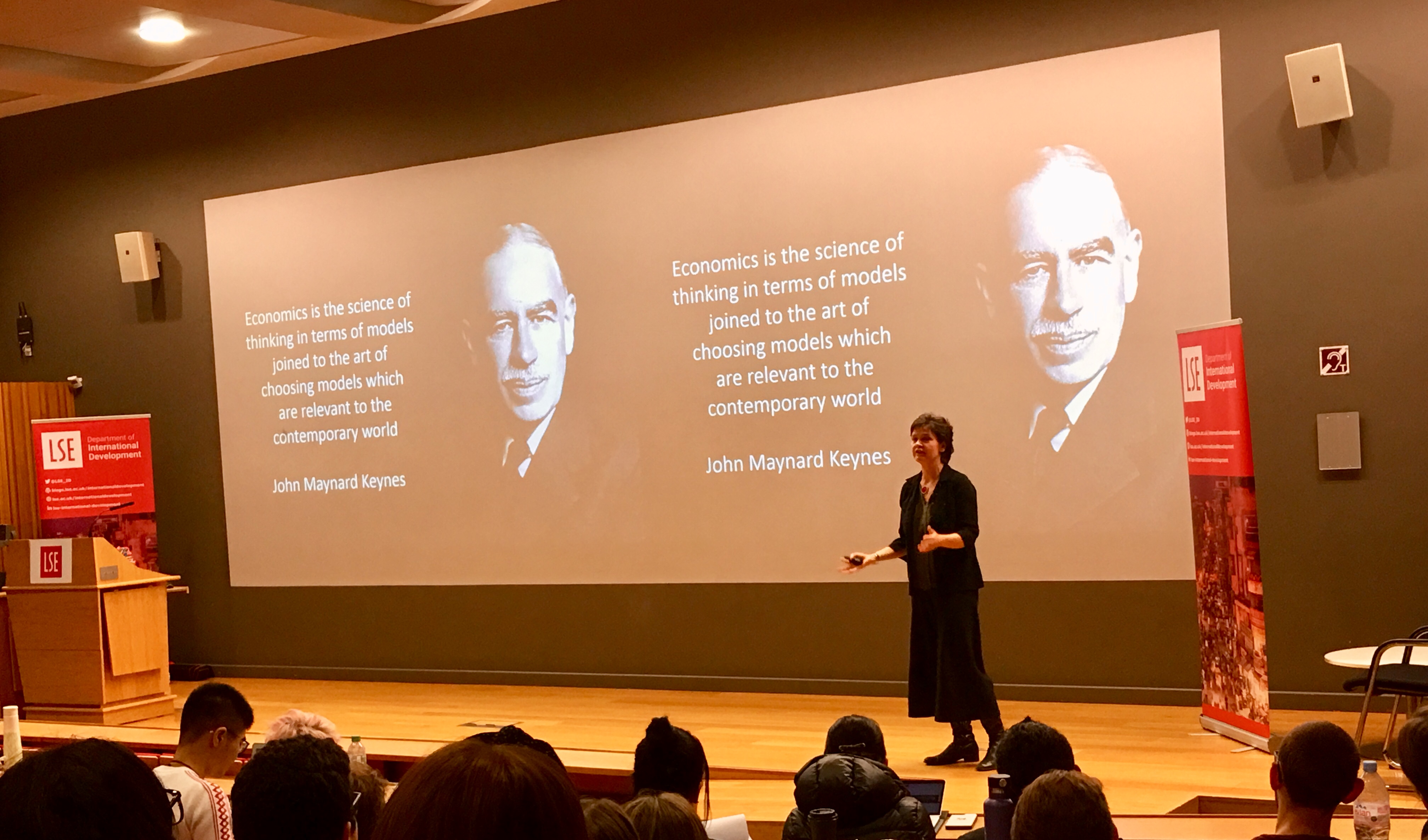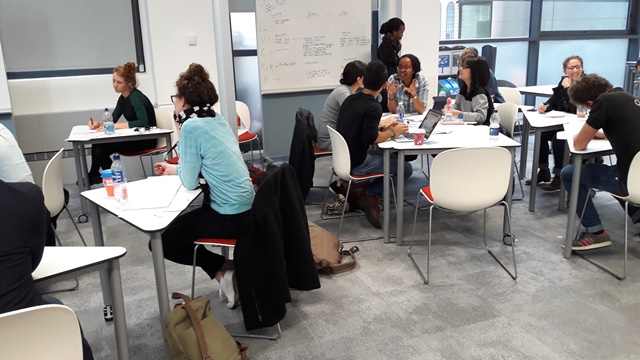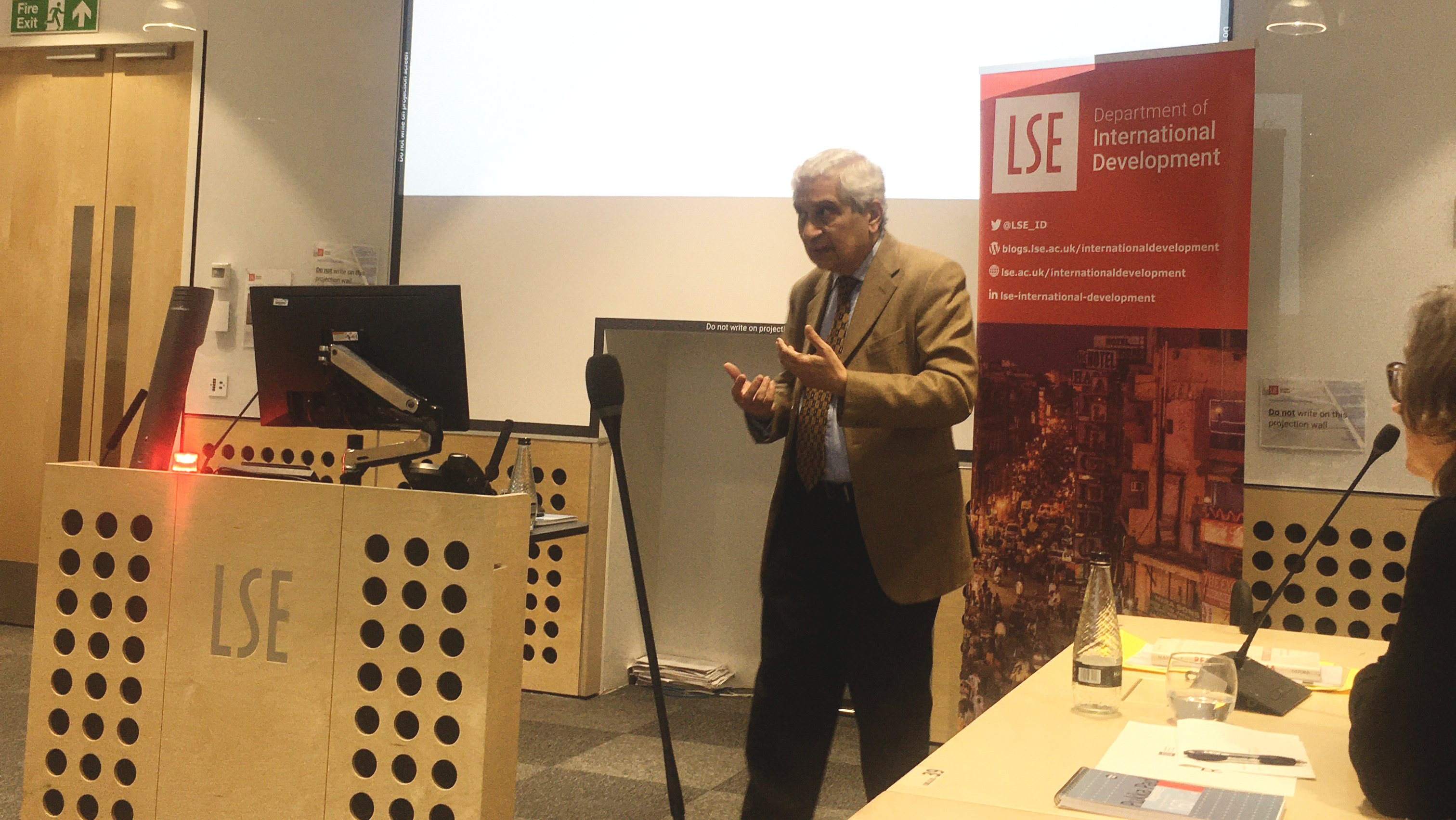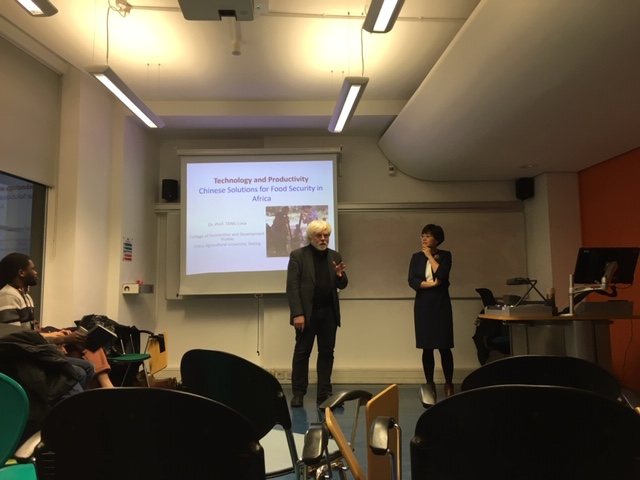On Friday 3 December, Mosharraf Hossain and Terhas Clark gave an online lecture on ‘Disability, Development, Rights and Inclusion’ as part of the Cutting Edge Issues in Development Lecture Series for 2021/22. Mosharraf Hossain is a Founding Director of Global Inclusion Consulting. Terhas Clark is an MSc Development Management alum (2016/17) and is a Disability Inclusion Officer at IOM – UN Migration. Read what MSc student Grace Shamlian took away from the lecture below.
You can watch the lecture back on YouTube or listen to the podcast.
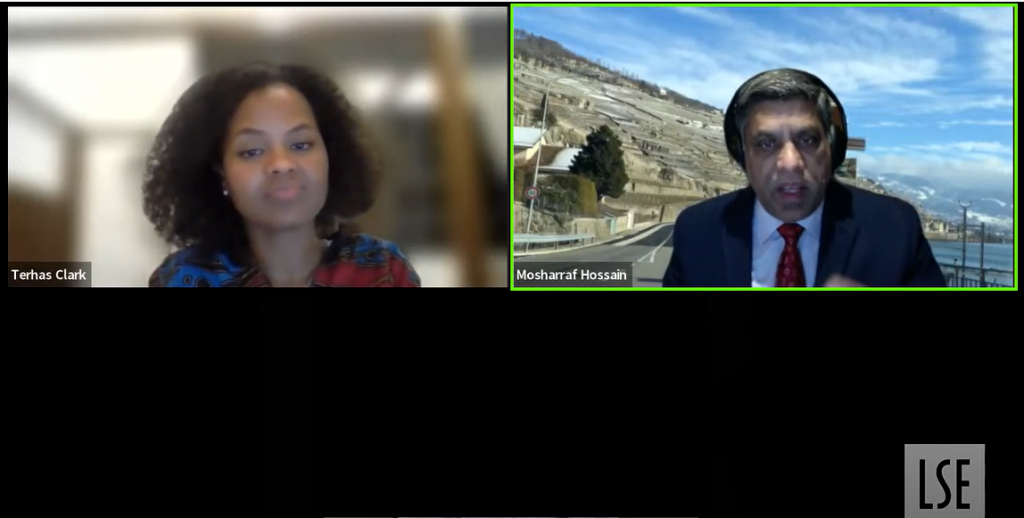
Friday, 3 December, was the International Day for Persons with Disabilities, and the LSE Department of International Development marked the occasion with a Cutting Edge Issues lecture entitled “Disability, Development, Rights and Inclusion.” Speakers Terhas Clark and Mosharraf Hossain, leaders of disability-focused movements, detailed the state of disability justice in development today, as well as areas for improvement going forward.
One of my favourite slogans in the disability justice movement is “nothing about us without us.” It’s a constant reminder that well-intentioned advocates are not the end all be all of fighting for disability justice. While allies are important, people with disabilities have the capacity to fight for inclusion and the right to be leaders in the disability justice movement – and in fact that they are the best equipped to do so. Clark and Hossain are great examples of this. Both have disabilities, and both lead movements in their respective countries to ensure full inclusion for people with disabilities in all aspects of public life.
“Nothing about us without us” and the advocacy of people with disabilities (PWD) and their allies have brought significant changes to the codification of inclusion in international law. The rights of PWD were codified by the United Nations in the Convention on the Rights of Persons with Disabilities (CRPD), but that was only in 2006. The CRPD was a welcome change, since (as both speakers reminded us) there was no mention of disability in the Millennium Development Goals, despite the disproportionate impact of poverty, conflict, and underdevelopment on people with disabilities. In a disconcertingly recent move, the resolutions adopted at the COP26 conference made no mention of disability or inclusion. The convention site itself was shockingly not even physically accessible for all attendees.
Despite these setbacks, there has been recent progress, and there is room for hope. The Sustainable Development Goals (SDGs) adopted by the United Nations in 2016 to replace the Millennium Development Goals mention disability five times in the context of capacity building, poverty, and inclusion. Since these goals are meant to guide development work across the world until 2030, this is a significant improvement over the previous goals.
Mosharraf Hossain reminded us that the step after the SDGs and CRPD is to democratise these rights and bring them down to the grassroots level. Having internationally recognised rights is a great start but ensuring that they are encoded at national levels is crucial, as is making sure that such laws are enforced. Enforcement is not the end either; the goal should always be to create a culture of inclusion, where no one is left behind. There will always be work to do on this front ensuring that people with disabilities in rural areas, refugee camps, and urban slums are not excluded.
The progress that Clark and Hossain detailed and the steps forward that they outlined are all important; obviously more rights are better than fewer rights. But the most important thing to remember about disability justice is that inclusion is not a gift that people who are currently abled give out of the goodness of their hearts. People with disabilities have always had the right to belong; the question is how long it will take until that right is universally recognised.
Grace Shamlian
_______________
The next guest lecture will be with Tasneem Essop on Friday 21 January 2022 on ‘Outcomes of COP26 and where next on Climate?’. LSE Students, Staff and Alumni can register here. External audiences can join the lecture via YouTube.
The views expressed in this post are those of the author and in no way reflect those of the International Development LSE blog or the London School of Economics and Political Science.


